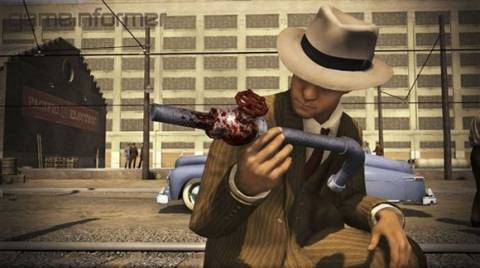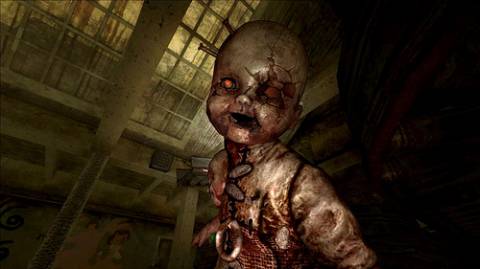Investigating Crime Scenes in Video Games
By Shane394 1 Comments
Everybody loves solving mysteries. As soon as something goes unexplained, our curiosity kicks in and we crave answers. Cole Phelps is a video game character who not only loves solving mysteries, but can get us the answers. Rather, Cole Phelps is a character who can walk around in circles listening for a piano jingle. Cole Phelps is a man who can discern details that players would like to figure out themselves. L.A. Noire frustrates me more than it seems to amaze others.
My frustration is brought on mainly by the fact that crime scene investigation aspect of the game (a pretty significant chunk) is lacking. The game seems more about the protagonist solving crimes than the player. You walk Cole through an environment until the controller vibrates. He examines an object, and if it is of any significance at all he will comment about it and add any important details to his handy dandy notebook. I'm not arguing that the notebook is a bad mechanic or really hurts the experience as a whole, I end up referring back to it many times during a case. The problem is that it downplays the importance of the player. The investigation sequences remind me of Heavy Rain; the player ends up walking the character around the room until they are prompted to look at something, something that they would never have noticed if the character hadn't pointed it out. Luckily for L.A. Noire, its story is compelling enough to make this process worth while, even though it is still very much a chore. I almost would have preferred a cutscene to these sequences, it would give the player all the information they needed to know in a more timely fashion, without dragging them through the process of spinning around in circles until Cole finds a clue. The chimes and controller rumble can be turned off, but then the game becomes basically impossible. The third person perspective makes it very, very easy to miss important details at a crime scene, and the player just ends up reverting back to walking around the environment, this time hammering the A button until Cole finds something.

Investigating these crimes has had me thinking about what other games have even attempted something like this. I failed to think of any better example than Condemned 2. I forget how other people felt about this game, so I might just be the one insane person who has any kind of reverence for Condemned 2, but I remember the game being pretty solid. My favorite bits involved the player stumbling upon a crime scene (Most of the time it was a murder, which was strange because I believe the main character was a homeless ex cop who was violently murdering dozens of homeless people) and having to investigate said crime scene. If I remember correctly, there was far less hand holding, the player was left on their own to actually examine a scene and determine what had happened. I don't believe there were any prompts letting you know you had found a clue, you would just have to be thorough and attentive enough to find anything of significance. When you signaled to the game that you were done, it quizzed you on the scene. Was the victim stabbed or bludgeoned? Were they killed here or was the body moved? And while getting these questions right wasn't crucial to the overall experience like it is in L.A. Noire, it was still pretty cool to have to figure out all of that stuff yourself. Keep in mind, Condemned 2 benefited greatly from a first person perspective, allowing the player to examine the environment more closely, as opposed to L.A. Noire, which fills forty percent of your screen with a character.

But that raises the question: am I the only one who has a problem with that? The rest of the game is pretty awesome, I'm just disappointed with the way crime scenes are handled. But am I missing the point? It is very possible that the game is just trying to translate the experience of watching a detective movie in to a video game form, not trying to replicate actual police work. Detectives in movies know just enough to let the player fill in the blanks, and Cole Phelps is no different.
And maybe the crime scenes aren't as important to the game as I think they are, or want them to be. The rest of the game seems to have been handled in such a way that everything in it is deliberate. Maybe they thought players would have a hard time. Who knows? I don't.
The technology is great, I'm not trying to say it isn't. I'm also not trying to review L.A. Noire. I'm simply commenting on its crime scene investigation gameplay and how it can be improved and how it already has been improved.
